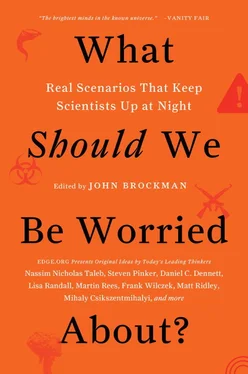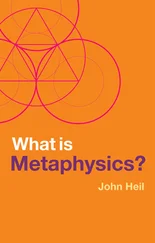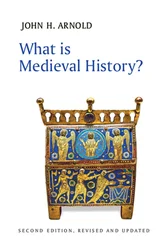The unexpected transmogrification of Fuller’s dream into a potential nightmare may eliminate scholarship and the livelihood of the scholar because the vast majority of scholarship arises from “teacher-scholars”—men and women who enlighten their research via their students and inform their teaching by their research. Though MOOCs are unlikely to threaten elite universities, they will lead to many closings of smaller liberal arts colleges and branch campuses of state universities. Bill Gates predicts that a college education, through MOOCs, will soon cost only $2,000 and that “place-based activity in that college thing will be five times less important than it is today.” [g] Techonomy Conference, Lake Tahoe, California, August 6, 2010.
And with this loss of importance of colleges will come the demise of the teacher-scholar—the promoter of knowledge and scientific thinking. MOOCs will replace many universities, the employers of scholars, by online certificates.
The teacher-scholar is a moderately paid individual who models problem solving and a cultivation of thirst for knowledge. The home in which this modeling takes place, the modern college or university, is the descendant of the academy of Plato. The greatest accomplishments of Western civilization have come from university and college students past and present, the disciples of professionals who have taken them under their wing, taught them in classes, worked with them in research labs, and talked about the glories of learning over a beer (or a coffee) in campus pubs and student unions.
A few miles from my home in the greater Boston area are some of the finest universities in the world. When I look at the schedules of departments in the dozens of universities in this region, I see listings for nightly lectures, brown-bag lunches, lab reports, book launches, and debates. And I know that these are only part of the peripatetic learning that takes place in America’s brick-and-mortar institutions. Replacing these experiences is not currently within the abilities or the objectives of MOOCs.
The driving force behind universities as they have come to be defined in the United States and other countries has been the idea of present and future discovery—learning new insights from the past, new cures for human ailments, new methods for thinking about problems, new ways of understanding value and values, new flows of capital and labor, and new methods of quantifying and interpreting the knowledge so laboriously attained. Yet this vision of the university as an incubator of discovery is dying. As a generation, we are acquiescing to the misinterpretation of universities as certifiers of job readiness rather than as cultivators of curiosity and fomenters of intellectual disruption of the status quo. The students who aspire to “find themselves” and change the world are being replaced by the students who want to find a job. The tragedy is that people believe that these objectives represent a stark choice rather than a compatible conjunction. Universities prepare us for both. For now.
The post–Internet idea that all knowledge should be cheap and quick fuels the explosion of interest in MOOCs and the view of education as the transmission of skill sets. If learning for its own sake is a luxury we can no longer afford, then society will not allow professors to “return to their research” as Fuller urged. Why employ so many professors or maintain so many student unions and so many libraries after the automation of education?
Learning is hard slogging helped by cups of hot chocolate, mugs of brew, and conversations with people who have slogged or are slogging themselves. It is the individual’s labor as a member of a larger community of learners. Humans have achieved culture—the transgenerational communication and development of learning. One of the greatest values of modern societies is the strange and beautiful notion that it is worth several years of the life of its young to participate in communities of scholars. Not merely the wealthy young but all the academically dedicated youth of an entire country.
Fuller’s vision was to improve teaching via professional video lectures interspersed with illustrative material—videos within videos. We have achieved this. But his corollary ideas that this technology would allow scholars to dedicate more time to research while simultaneously involving a larger percentage of the world’s population in the process of discovery are threatened by the very technology he foretold. If scholars make their living as teacher-scholars and technology eliminates the need for most scholars to teach, then there will be few sources of income for scholars. And if students are more interested in finding employment than finding truth, then I worry how the economy can fulfill its vital need for scholarship, as students request primarily MOOCs and other classes that immediately enhance employability.
Fuller’s prescient idea of education automation failed to anticipate the economic and intellectual consequences of its own success—the demise of the very scholar he expected it to protect. That should worry us all.
SCIENCE IS IN DANGER OF BECOMING THE ENEMY OF HUMANKIND
COLIN TUDGE
Writer & biologist; author, The Link: Uncovering Our Earliest Ancestor
We—scientists and the world in general—should be worried because:
Science has become increasingly narrow-minded—materialistic, reductionist, and inveterately anthropocentric, still rooted philosophically in the 18th century.
Science is increasingly equated with high tech. “Vocation” used to mean a deep desire to engage and seek out the truth, insofar as human beings are able. Now it means getting a job with Monsanto.
Britain’s Royal Society has become a showcase for high tech, and high tech is perceived as the means to generate wealth—and this is deemed to be “realistic,” the way of the world, not only acceptable but virtuous.
Science, in short, is in danger of losing its integrity and its intellectual independence—of becoming the handmaiden of big business and the most powerful governments. Since we cannot assume that increasing wealth and top-down technical control are good for the human race (or our fellow creatures), science, for all its wonder and all its achievements, is in danger of becoming the enemy of humankind.
Worst of all, perhaps, is that those in high places—both in science and in politics—don’t seem to realize that this is happening. They do not listen to criticism. “Public debate” means a one-way flow of information de haut en bas. The status quo, for all its obvious flaws and, indeed, its horrors, is seen as “progress.” But those who are doing well out of it, including those intellectuals who have chosen to go along with the act, cannot even begin to consider that they could be wrong.
All this, by all measures, is a tragedy.
ILLUSIONS OF UNDERSTANDING AND THE LOSS OF INTELLECTUAL HUMILITY
TANIA LOMBROZO
Assistant professor of psychology, UC Berkeley
My spelling has deteriorated as automated spell-checking has improved. With a smartphone at my fingertips, why bother doing multidigit multiplication in my head? And I can’t say whether GPS and navigation software have made my mental maps any more or less accurate.
These are just some of the skills that have been partially outsourced from many minds, thanks to recent technological advances. And it won’t be long before important aspects of our social and intellectual lives follow suit. As interfaces improve and barriers between mind and machine break down, information of all kinds isn’t simply at our fingertips but seamlessly integrated with our actions in the world.
Forfeiting skills like spelling, navigation, and even certain kinds of social knowledge to our gadgets doesn’t worry me much. What does worry me is the illusion of knowledge and understanding that can result from having information so readily and effortlessly available. Research in the cognitive sciences suggests that people rely on a variety of cues in assessing their own understanding. Many of these cues involve the way information is accessed. For example, if you can easily call an image, word, or statement to mind, you’re more likely to think you’ve successfully learned it and to refrain from effortful cognitive processing.
Читать дальше












